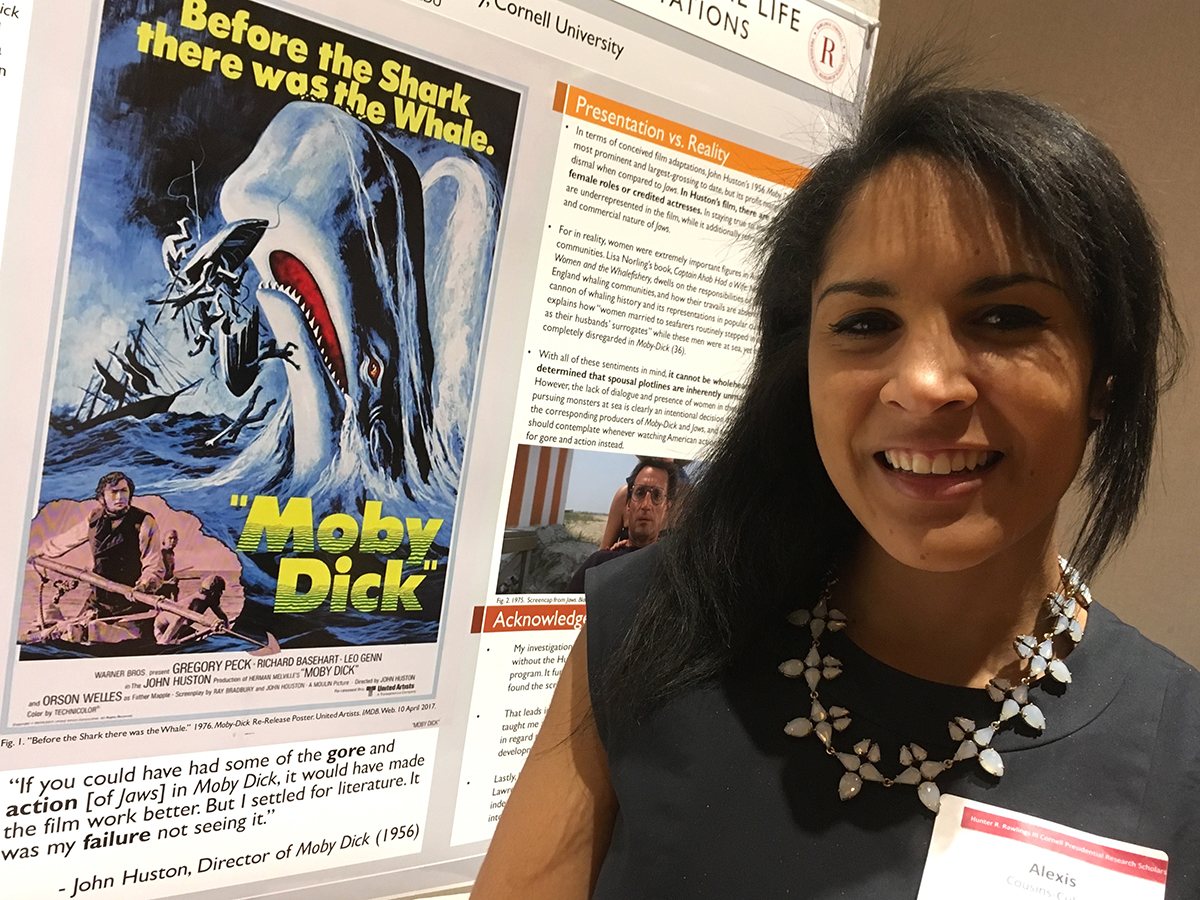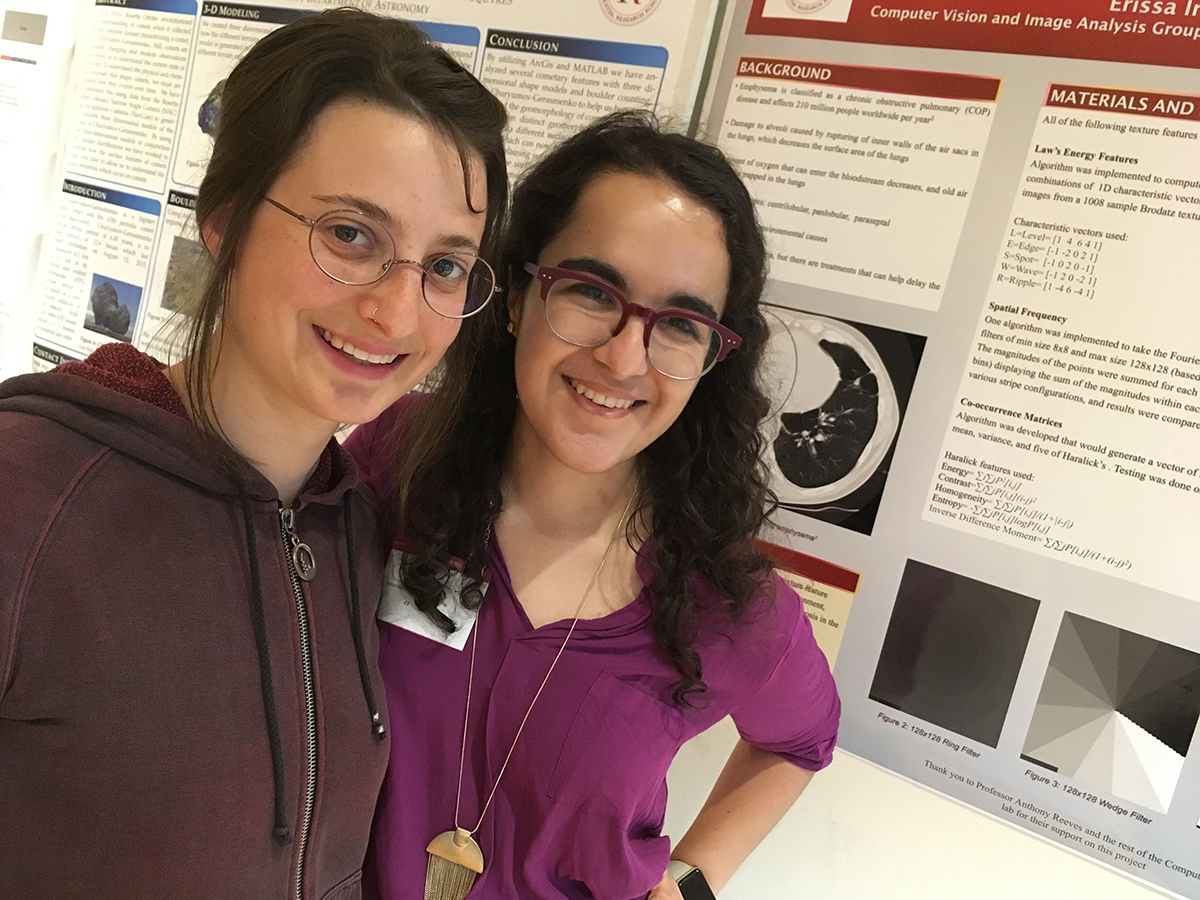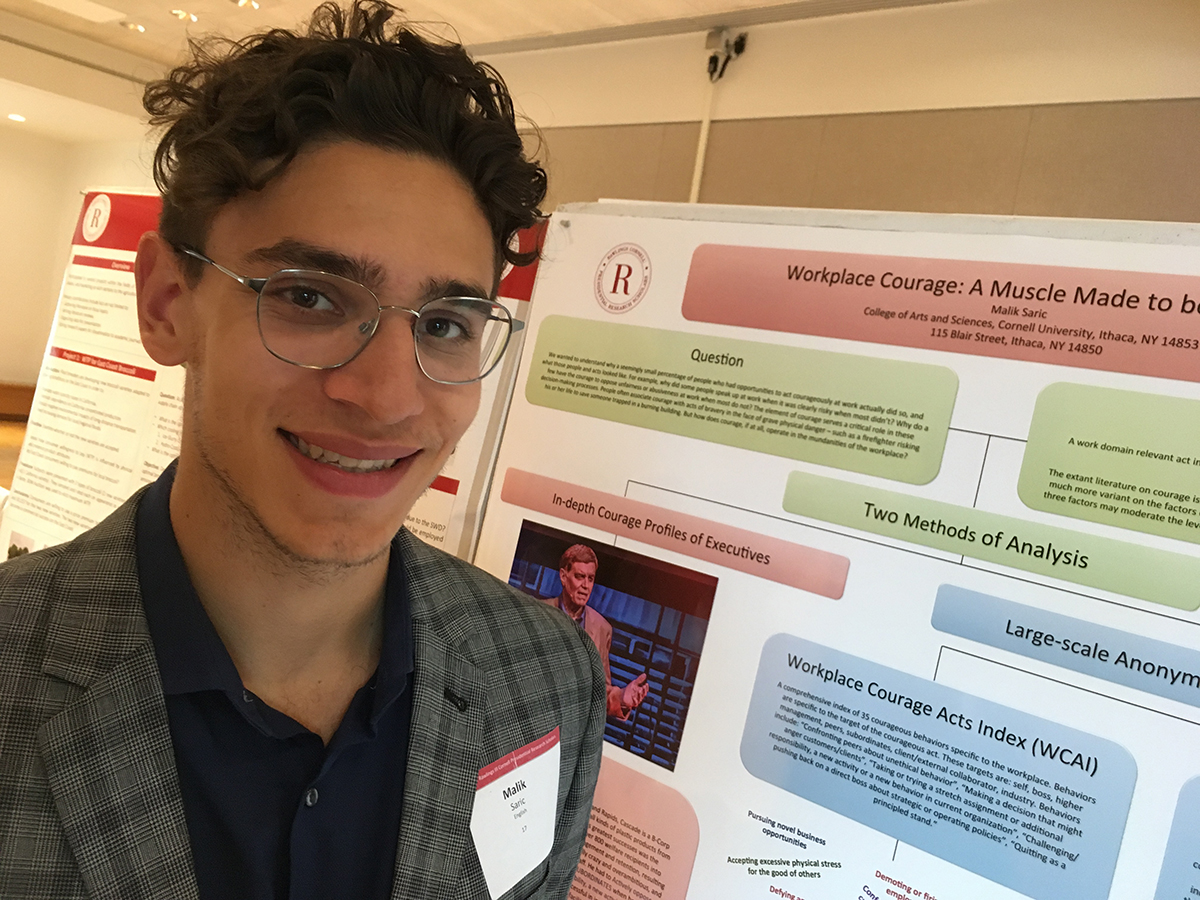Rawlings scholars navigate to senior research success
By Blaine Friedlander

We’re gonna need a bigger poster session.
Alexis Cousins-Culver ’17 presented her research into the tales of two sea creatures, the whale in “Moby-Dick” and the great white shark in “Jaws,” as part of the Hunter R. Rawlings III Research Scholars Senior Expo, April 19.
“I grew up in Orlando, near Universal Orlando, so I grew up with the ‘Jaws’ ride, which, sadly, no longer exists,” she said. Her research examined why women were ignored in popular maritime culture.
In her archival research, she found two “Moby-Dick” movie adaptation scripts, one from David O. Selznick (1947) and another (1996) from Robert DeNiro’s production company. Both had created a “Mrs. Ahab” character – not present in the Herman Melville novel – and neither script was made into a movie. Cousins-Culver said that maritime wives were prominent, in reality, as they managed households and finances while their men sailed away. In novelist Peter Benchley’s “Jaws,” Ellen Brody, the police chief’s wife, had a significant plotline – which never made it into the film.
The Rawlings scholars program, which features a wide range of undergraduate research, provides significant support to students who have strong academic potential and intellectual curiosity. About 200 students are supported annually.
At the forum, Erissa Irani ’17 presented her poster, “The Development of Texture Feature Algorithms in Diagnosing Early Stage Emphysema.” Through problem-solving operations and calculations, she taught a computer to interpret CT images of lungs.

“We want a computer to do what a physician can do, but more accurately and faster,” Irani said. “You want to get this disease detected early, so that treatments can begin to slow it down.”
Adi Agashe ’17 displayed two posters. In the first, on a consumer’s likelihood to shop online, the results could be used as a marketing strategy for emerging grocery delivery businesses. The second poster, “Swipe to Unlock: The Secrets Behind Forces Driving Everyday Technology,” a collaboration with Parth Detroja ’17 and Harvard student Neel Mehta ’18, will be made into a book about technological nuances in everyday life and how technology shapes our decisions.
Malik Saric ’17 showed how workplace courage is a muscle made to be exercised. “In society, we think about heroes in terms of physical bravery, but I see courage as an everyday behavior,” he said. “Rather than an innate skill you’re born with, courage is something we can learn and improve all the time.”
Saric solicited more than 1,200 anecdotes, studied 40 industries and interviewed five chief executive officers to construct a Courageous Behavior Act index. “The most important thing about courage is having a strong set of values and an ethic. That is the springboard,” he said.

Diving into ancient history, Emma Ianni ’17, offered her poster, “Comparing Processions in Ancient Greece, Rome and Contemporary Italy: The Role of Gendered Insults.” Men of ancient societies often hurled insults to the powerful, as women did not participate. In fact, these men derogatorily referred to the municipal officials – always male – as women, which still occurs today. Witness how White House Press Secretary Sean Spicer is portrayed by Melissa McCarthy on Saturday Night Live.
Ianni is not surprised. “It’s been happening since antiquity,” she said.
Media Contact
Get Cornell news delivered right to your inbox.
Subscribe